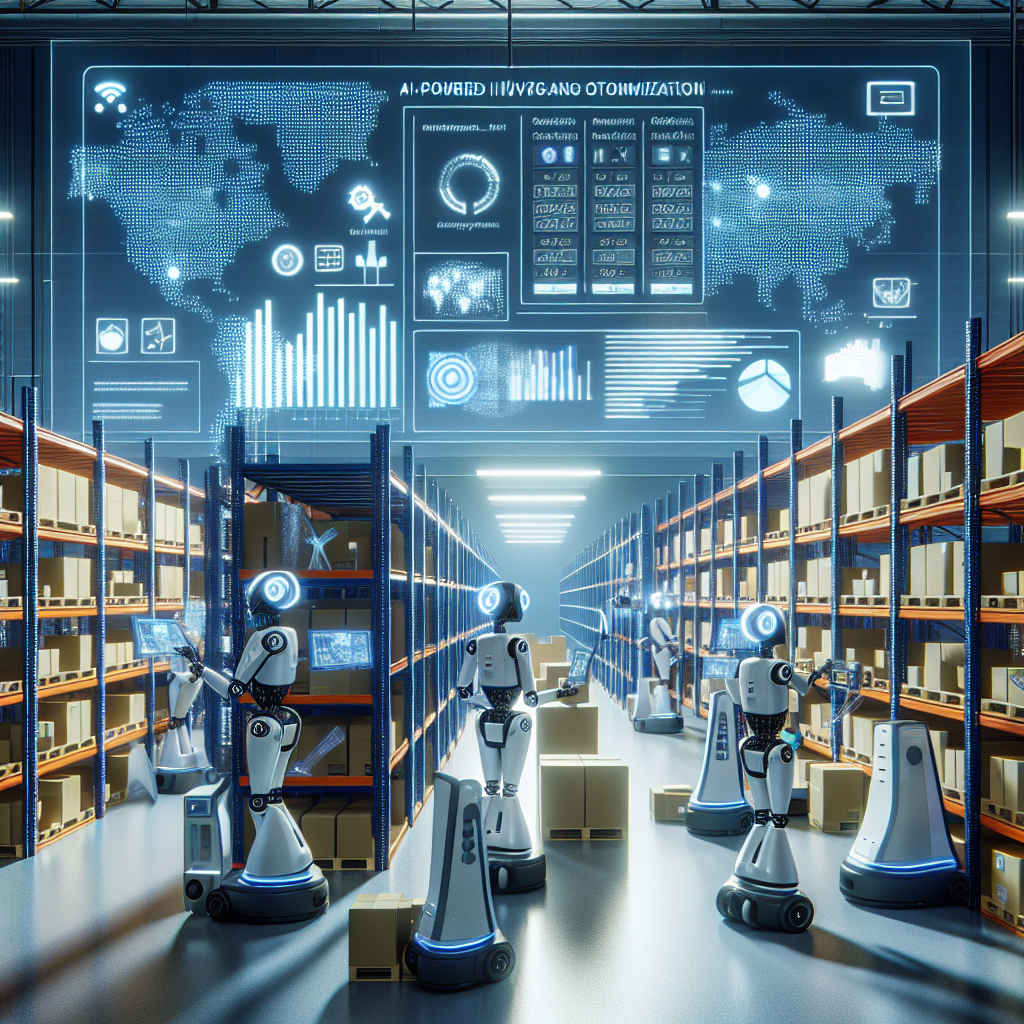The Impact of AI Automation on Inventory Management and Supply Chain Optimization
In the ever-evolving world of business, technology plays a crucial role in driving efficiency and productivity. One area where technology has made a significant impact is in inventory management and supply chain optimization. With the advent of artificial intelligence (AI) automation, businesses are now able to streamline their operations, reduce costs, and increase profitability like never before.
AI automation refers to the use of artificial intelligence technologies to automate tasks that would typically require human intervention. In the context of inventory management and supply chain optimization, AI automation can revolutionize the way businesses handle their inventory, forecast demand, and manage their supply chain processes. By leveraging AI algorithms and machine learning models, businesses can make more accurate predictions, optimize inventory levels, and improve overall efficiency.
One of the key benefits of AI automation in inventory management is the ability to forecast demand more accurately. Traditional demand forecasting methods are often based on historical sales data and manual calculations, which can be prone to errors and inaccuracies. With AI automation, businesses can analyze vast amounts of data in real-time, including sales data, market trends, and external factors, to make more precise demand predictions. This allows businesses to optimize their inventory levels, reduce stockouts, and improve customer satisfaction.
AI automation also enables businesses to optimize their inventory management processes. By using AI algorithms to analyze data on sales, inventory levels, lead times, and other variables, businesses can determine the optimal reorder points, safety stock levels, and order quantities. This helps businesses reduce excess inventory, minimize stockouts, and improve inventory turnover rates. Additionally, AI automation can help businesses identify slow-moving or obsolete inventory and implement strategies to reduce carrying costs and improve cash flow.
In addition to inventory management, AI automation can also enhance supply chain optimization. By leveraging AI technologies to analyze data on suppliers, transportation routes, lead times, and other variables, businesses can make more informed decisions about sourcing, logistics, and distribution. This can lead to more efficient supply chain processes, lower transportation costs, and improved delivery times. AI automation can also help businesses identify bottlenecks in their supply chain and implement strategies to improve overall efficiency and reduce costs.
Overall, the impact of AI automation on inventory management and supply chain optimization is significant. By leveraging AI technologies to automate tasks, analyze data, and make predictions, businesses can improve efficiency, reduce costs, and increase profitability. As AI technologies continue to advance, the potential for further optimization and innovation in inventory management and supply chain processes is limitless.
FAQs:
Q: How does AI automation improve demand forecasting in inventory management?
A: AI automation enables businesses to analyze vast amounts of data in real-time, including sales data, market trends, and external factors, to make more precise demand predictions. This allows businesses to optimize their inventory levels, reduce stockouts, and improve customer satisfaction.
Q: How can AI automation help businesses optimize their inventory management processes?
A: By using AI algorithms to analyze data on sales, inventory levels, lead times, and other variables, businesses can determine the optimal reorder points, safety stock levels, and order quantities. This helps businesses reduce excess inventory, minimize stockouts, and improve inventory turnover rates.
Q: What are the benefits of AI automation in supply chain optimization?
A: AI automation enables businesses to analyze data on suppliers, transportation routes, lead times, and other variables to make more informed decisions about sourcing, logistics, and distribution. This can lead to more efficient supply chain processes, lower transportation costs, and improved delivery times.
Q: How can businesses leverage AI automation to identify bottlenecks in their supply chain?
A: By using AI technologies to analyze data on various aspects of the supply chain, businesses can identify bottlenecks, inefficiencies, and areas for improvement. This allows businesses to implement strategies to improve overall efficiency and reduce costs.

